Washington/New York, Aug 16 (PTI) The Indian community in the US celebrated India’s 69th Independence Day with fervour by unfurling the national flag and organising cultural events to mark the occasion.
India’s Ambassador to the US Arun K Singh read out President Pranab Mukharjee’s national address and hoisted the tri-colour at a function at his residence here.
Singh said as the defining partnership of the 21st century in the world, India and the US are enhancing their ties not only at the bilateral level, but also at the regional and global levels.
“With the historic visits of Prime Minister Narendra Modi in September 2014 and President Barack Obama in January, the leaders of both countries have given a great impetus to the momentum of this relationship,” he said.
“Our bilateral trade and investment, which are reaching new heights, are encouraging us to aspire for higher goals.
Our cooperation has deepened in the established sectors while new fields are continuously added to widen our relationship.
People-to-people contact is one of the strongest pillars of this growing relationship,” the Ambassador said.
The flag-hoisting ceremonies at various places were attended by a cross-section of the local Indian community, diplomats and government officials.
In Houston, Consul General P Harish unfurled the national flag at his residence, while the Indian Consul General in San Francisco hoisted the tri-colour at the historic Gadar Memorial, which was thronged by Indians.
Consul General in Chicago, Dr Ausaf Sayeed, hoisted the flag and Consul General Nagesh Singh unfurled the tri-colour in Atlanta.
Consul General in New York, Dnyaneshwar M Mulay, hosted the Independence Day celebrations where diplomats from Sri Lanka, Nepal, Pakistan along with the community leaders were in attendance.
Mulay in his address urged the Indian community to form “India-centric think tank” to propagate the country to the global community in a bigger way.
The tricolour was hoised at India’s Consulate General and its Permanent Mission to the UN in the presence of hundreds of diplomatic officials and members of the Indian-American community.
Permanent Representative of India to UN Ambassador Asoke Mukerji hoisted the national flag at the mission premises and readout excerpts from President Pranab Mukerjee’s address to the nation.
The brief ceremony at the mission was attended by over 150 guests including senior Indian officials of the United Nations, Indian Army and Police officers on deputation to the UN.
Under Secretary Generals of the UN Vijay Nambiar and head of the UN Department of Field Support Atul Khare were also present.
New Delhi, Aug 16 (PTI) To protect the interest of domestic workers, the government is readying a national policy that proposes a minimum salary of Rs 9,000 per month for the skilled full-time household helps, along with a host of benefits including social security cover and mandatory leaves.
The draft ‘National Policy for Domestic Workers’, which would be soon moved for approval of the Union Cabinet, also calls for provisions against sexual harassment and bonded labour and recommends compulsory paid leave of 15 days a year as also the maternity leave.
Besides, the Policy provides that the domestic workers be given a right to pursue education, a safe working environment and a grievance redressal mechanism. It also has a provision for mandatory contribution from the employer towards social security of the domestic workers.
Workers and employers will also have rights to form groups and engage with each other for ‘collective bargaining’.
A draft note in this regard, prepared by the Director General Labour Welfare (DGLW), was submitted to Labour Minister Bandaru Dattatreya last week.
“The Domestic Workers Policy has to be framed. Domestic workers are also subjected to exploitation and therefore the welfare and protection of domestic labour force is very important,” Dattatreya told PTI.
“The policy framework is on par with the standards of the International Labour Organisation. India has adopted the ILO convention on domestic workers and therefore we have to make a policy for this segment of the society,” he said.
Once it comes into force, the policy will make it binding to enter into a tripartite agreement between the employer, the worker and the intermediary agency that connects the two, a senior Labour Minister official said.
The draft policy recommends minimum monthly wage for unskilled, semi-skilled, skilled and highly-skilled categories of the domestic workers.
“Highly-skilled and those giving full-time service should be eligible to get a salary of at least Rs 9,000 per month,” the official said, while adding that the aim of the policy is to empower the domestic workers by making this large workforce a services industry in due course of time. .
A physically challenged shopkeeper was allegedly attacked with a sword in suburban Chembur following which four persons have been arrested, police said on Thursday.
The incident took place on Tuesday evening when the main accused Akram Sheikh (28) entered the shop of Rajnish Thakur (36) at P L Lokhande Marg in Chembur and attacked him with a sword, Tilak Nagar police station’s senior inspector Bhagwat Sonawane said.
Thakur, who is physically challenged, was saved from the attacker by a customer inside the shop who managed to overpower Sheikh, he said adding that the accused is part of a gang of drug addicts which has been extorting money from shopkeepers since sometime.
The incident was captured in a CCTV camera installed in the shop, Sonawane said adding that with its help, they managed to nab four members of the gang.
The four men arrested yesterday were remanded in police custody till tomorrow by a local court, he said adding that search was on for two more persons in this connection.
Meanwhile, the shopkeeper was admitted to a nearby hospital, police said.
According to Thakur’s brother Manish, a group of drug addicts had been allegedly trying to extort Rs 1,500-2,000 every month from the 200 odd shops on P L Lokhande Marg area of Chembur while threatening to damage their establishments if the money was not given.
“My brother and I had distributed pamphlets and put up small posters outside shops in Chembur so that the shopkeepers refuse to pay the extortion money,” he claimed.
“In last one-and-a-half month we had informed police thrice about threats for extortion from junkies in the area.
But, neither preventive nor any other appropriate action was taken,” he alleged.
“Few days back, my brother and I had taken a group of shopkeepers to DCP (Zone VI) and informed him about the constant threats. The DCP had instructed the concerned police personnel to take action against the culprits,” he said.
However, no action was taken by the police. Were the cops waiting for such an untoward incident or someone to die for taking action against the hooligans? he asked.
DCP (Zone VI) Sangram Singh Nishandar was unavailable for comments in this regard.
New Delhi, Aug 16 (PTI) Prime Minister Narendra Modi today wished Arvind Kejriwal on his birthday and the Delhi Chief Minister immediately responded with thanks and desired to meet him to discuss the situation in the national capital.
“Spoke to Delhi CM Shri @ArvindKejriwal & wished him on his birthday. My prayers for his long life and good health,” the Prime Minister tweeted.
The Chief Minister thanked the Prime Minister for the wishes.
“@narendramodi Thank u so much sir for your wishes. I am touched. I look forward to meeting u soon to brief u on Delhi’s situation,” Kejriwal said.
The exchange came amid a standoff between the Centre and Delhi government over struggle of power in the national capital and other issues.
New Delhi, Aug 12 (PTI) In a spirited fight back, External Affairs Minister Sushma Swaraj today tore into Congress, saying it had helped Bofors accused Ottavio Quattrocchi and Bhopal gas leak accused Warren Anderson flee from India and roped in Rajiv Gandhi in this regard.
Making a statement in Lok Sabha, she specifically responded to Congress Vice President Rahul Gandhi’s charge that she had got money to help Lalit Modi by telling him to ask his “mamma” as to “how much money had been taken from Quattrocchi” and “why did ‘daddy’ (Rajiv Gandhi) get released the killer of 15,000 people (in Bhopal gas leak),” an apparent reference to Anderson.
Swaraj, who has been battling demands for her resignation over alleged ‘quid pro quo’ in relation to Lalit Modi, said, “this is called quid pro quo… Rahul should ask (his mother), why they did the quid pro quo” with regard to Quattrocchi and Anderson.
While she spoke amid slogan-shouting by Congress members, Sonia Gandhi was seen listening to the speech in rapt attention using headphone.
Swaraj also targeted former Union Minister P Chidambaram, saying he had failed to bring back Lalit Modi from United Kingdom as he did not try for his extradition as suggested by the host government and confined his requests to deportation.
“For four years, you (Congress government) did nothing.
You remained inactive. There was no effort for extradition.
You are asking me how he (Lalit Modi) got right of residency (in UK). He got it during your time. Whatever happened, it was during your tenure,” she told the Congress. .
With 26.5 million smartphones shipped in the second quarter of India representing a 44 per cent growth year-on-year (y-o-y), IDC predicts by 2017 India will overtake US to be the second-largest smartphone market globally.
IDC expects India to maintain a double-digit growth rate over the next few years as people switch to smartphones and gradually upgrade to 4G.
This strong June quarter performance saw smartphone shipments grow 19 per cent following a sluggish March quarter, said International Data Corporation’s (IDC) Quarterly Mobile Phone Tracker. A total of 18.4 million units were shipped for the same period last year.
However, this growth was specific to smartphones only as the overall Indian mobile phone market shrunk six per cent in the June quarter on a y-o-y basis. Vendors shipped 59.4 million units in April-June period of 2015 compared to 63.2 million units shipped in the same period a year ago.
According to Kiran Kumar, research manager with IDC’s India Mobile phone team, e-tailers opened additional avenues for growth for many vendors in India, who would have otherwise struggled to get a hold in the complex distribution network. Although India remains a retail dominated market, vendors such as Lenovo and Xiaomi have used e-tailing channels in India to rapidly expand their presence. “The share of smartphone shipments through e-tailers increased for most of the key vendors in June quarter,” added Kumar.
In addition, Chinese vendors have tripled their shipments y-o-y in India and doubled quarter-on-quarter (q-o-q). Lenovo, Xiaomi, Huawei and Gionee alone accounted for 12 per cent of the total smartphone market in the June quarter, double from a year ago.
“As China started to slow down, most vendors from the country have targeted India as the next big growth market for smartphones,” said Kiranjeet Kaur, research manager with IDC’s Asia/Pacific Mobile phone team. The new entrants to the Indian market have utilized specific strategies to drive sales growth, according to Kaur. “Key to the success of the Chinese vendors has been popular flash sales through online players such as Flipkart, Snapdeal and Amazon. At the same time, they also focused on bringing more 4G phones at affordable $100-150 price points, which has been left unattended by Indian and global vendors.”
Except for Lenovo, the top vendors in the June quarter still had majority of their shipments going through traditional channels.
Among the vendor ranking, Samsung continues to be the leader in the Indian smartphone market despite q-o-q shipment decline, while growing shipment on a y-o-y basis. The resultant volume growth y-o-y came from their phones in the affordable segment such as the relatively new Galaxy J1, and older models such as the Galaxy Core. Performance was not boosted by the first full quarter of sales for the new Galaxy S6 and S6 edge.
Micromax made a comeback this June quarter with 60 per cent q-o-q growth. Even though its AndroidOne phones and the Yu Yureka phones got off to a slow start, its other smartphones in the $50-150 price segment, where it is traditionally strong, performed well. Intex captured the third position.
Prime Minister Narendra Modi needs to offer much more than just his best intentions to clean up India’s whimsical tax regime to help convince insurers.
Companies from Allianz SE to American International Group Inc. are avoiding offering tax-liability coverage in India’s cross-border mergers and acquisitions market because of a relatively high risk of disputes. None of the 21 general insurers operating in the country provides cover for tax risks arising from M&A transactions.
“No one is comfortable offering that product in geographies without a stable tax regime,” said Sushant Sarin, senior vice president for commercial lines and broking at Tata AIG General Insurance Co., the local unit of the New York-based insurer. “Demand for insurance cover on cross-border deals tax risks in India has been surging, though.”
More than a year after coming to power, Modi has failed to allay investor concerns over a law that allows authorities to make retrospective tax claims. Instead of repealing it, he promised to refrain from reviewing old deals, adding to the muddle as authorities face pressure to boost one of the world’s lowest tax collection rates.
Vodafone, Nokia
Tax indemnity insurance is purchased either by the buyer or seller involved in an acquisition, where a known tax issue has been identified during due diligence process. The insurer typically agrees to compensate for any additional taxes, interest or penalty that has to be paid by the insured in the transaction.
Cross-border deals involving overseas companies and their Indian units spark transfer pricing questions about how to value the transactions for tax purposes. Modi has blamed decisions by the previous government for some of the recent tussles.
Some of the companies embroiled in tax disputes with India’s finance ministry include Nokia OYJ, Vodafone Group Plc, Cairn India Ltd. and Cadbury chocolate maker Mondelez International Inc. for total claims of about $10 billion.
In the Nokia case, tax spats forced the company to suspend operations at its factory in Chennai last year, with thousands of workers offered voluntary retirement.
Deals Rise
The $3 billion case over capital gains from Vodafone’s 2007 acquisition of Hutchison Whampoa Ltd.’s Indian business is going into international arbitration even after India’s Supreme Court ruled against the government’s claim in 2012. Cairn India has said its $3.3 billion dispute will deter overseas investment. Mondelez is contesting an excise duty claim.
The bad press may be deterring some companies from pursuing deals in India, said Jacob Mathew, managing director and co-founder of Mumbai-based investment bank MAPE Advisory Group Pvt.
“Many transactions haven’t happened as tax indemnity insurance is not available in India,” he said. “Corporates who are new to India find this daunting.”
Still, mergers and acquisitions involving Indian companies have touched $48.4 billion this year, 11 percent more than the whole of 2014, according to data compiled by Bloomberg. Overseas firms have announced $13.2 billion of acquisitions in India this year, versus $17.1 billion in 2014.
Even after Modi told investors on a trip to Germany in April that India is a “changed country” with a more “transparent, responsive and stable” regulatory framework, officials on the ground are often under pressure to pursue claims to shore up revenue.
‘No Product’
Modi’s government has vowed to narrow the budget deficit to 3.9 percent of gross domestic product in the year to March 31, 2016, with a projection of 16 percent increase in tax collections. India’s tax-to-GDP ratio was 10.8 percent in 2012, higher than only 12 of about 200 countries tracked by the World Bank.
“This is an issue investors have to deal with and hence makes deals more complicated to execute,” Ajeeth Narayan, country head for India at Investec Plc, which owns a bank and money manager in South Africa and the U.K., said in an e-mail. “Then, there is the additional cost element for covering off this risk as well.”
A transparent tax regime is important for a robust mergers and acquisition market as investors want to grow their business rather than get drawn into a long battle with tax authorities, he said.
Underwriting and pricing risk in a segment where the law changes retrospectively is a challenge, according to Tata AIG’s Sarin. Insurers offer the tax indemnity insurance in markets with stable tax regimes such as the U.S., U.K. and Singapore, he said.
“We have no such product in the Indian market and neither does anyone else to the best of my knowledge,” said Sasikumar Adidamu, Mumbai-based chief technical officer for non-motor insurance at Bajaj Allianz General Insurance, the local unit of the Munich-based insurer.
New Delhi, Aug 12 (PTI) Signs of a thaw emerged in Lok Sabha with the government accepting Opposition demand to discuss an adjournment motion on External Affairs Minister Sushma Swaraj’s alleged role in Lalit Modi controversy.
Swaraj herself requested Speaker Sumitra Mahajan to accept the Opposition demand soon after the House assembled for the day, the penultimate day of the Monsoon Session which has remained stalled over Congress protests on the Lalit Modi and Vyapam issues.
The External Affairs Minister’s request prompted Parliamentary Affairs Minister Venkaiah Naidu to tell the House that the government was ready to discuss the issue under an adjournment motion, a matter which was not acceptable to it so far.
As the Opposition began their protests, Swaraj requested the Speaker to accept the notice of adjournment motion given by Congress leader Mallikarjun Kharge that was related to her.
Making an earnest appeal, Swaraj said the adjournment motion should be “accepted as it is”.
Let only the Opposition participate in the debate and no one from the government would be part of it, she said.
“My only request is that the Opposition should be present in the House when I give the reply,” Swaraj said.
However, Kharge insisted that the Prime Minister Narendra Modi should be present during the debate and should reply.
How can action be taken against the Minister without the Prime Minister being present and answering to the debate, he wondered.
In a setback to India’s bid for a permanent seat in an expanded UN Security Council, the US, along with Russia and China, has opposed negotiations to reform the powerful UN body, refusing to contribute to a text that will form the basis for the long-drawn reform process.
UN General Assembly President Sam Kutesa achieved a breakthrough of sorts by circulating a text to UN members that will form the basis for the negotiations on the reform of the Security Council. Kutesa had appointed Jamaica’s Permanent Representative Courtenay Rattray to chair on his behalf the Intergovernmental Negotiations on Security Council Reform.
Kutesa, in a letter dated July 31 to all UN members, said he is also circulating letters containing the positions of groups and Member States that indicated they did not wish their proposals to be included in the body of the negotiating text. These countries include US, Russia and China.
American Ambassador to the UN Samantha Power said in her letter to Kutesa that the US is “open in principle” to a “modest” expansion of both permanent and non-permanent members but the condition that “any consideration of an expansion of permanent members must take into account the ability and willingness of countries to contribute to the maintenance of international peace and security and to the other purposes of the United Nations.”
Power added that “we believe that consideration of new permanent members must be country-specific in nature.” She also reiterated that the US remains opposed to “any alteration or expansion of the veto”.
Sources told PTI that the US opposition to aspects of the reform process can be perceived as a “duplicity” since President Barack Obama has reaffirmed his support for a reformed UN Security Council with India as a permanent member.
Russia, which has also supported India’s candidacy as permanent member, said in its letter to Kutesa that the “prerogatives of the current Permanent Members of the Security Council, including the use of the veto, should remain intact under any variant of the Council reform”.
“The intergovernmental negotiations on the UN Security Council reform should proceed in a calm, transparent and inclusive atmosphere free from artificial deadlines,” it said.
India has maintained that the process to expand the powerful UN body “cannot be seen to be an exercise ad infinitum” and a results-based timeline is crucial to achieve a concrete outcome.
“Those who ask for not imposing artificial timelines may be advised to desist from inflicting artificial delays on this process,” India’s Ambassador to the UN Asoke Kumar Mukerji has said in the past.
Sources said that India feels that the 70th anniversary of the UN, being commemorated this year, is an appropriate milestone to propel the reform process, which should be completed within the next one year.
India -born Sundar Pichai has been named the new chief executive of Internet-giant Google. This news came on the back of a new holding company Alphabet, which will host Google and its other businesses as subsidiaries. Co-founder and current CEO of Google, Larry Page announced the inception of Alphabet, Google’s new holding company. Larry Page will step down as Google’s chief and Pichai will take over his position. Page will take the helm as the new CEO of Alphabet.
Sundar Pichai was born in Chennai on July 12, 1972 and his original name happens to be Pichai Sundarajan.
He did his schooling from GRT Mahalakshmi Vanavani School, which was in the Indian Institute of Technology, Chennai campus. He graduated from IIT Kharagpur as a Metallurgical Engineer, and holds a Post Graduation (MS) degree from Stanford University. He also holds an MBA from Whaton School of University of Pennsylvania.
He has keen interest in Cricket and was the captain of his school cricket team.
Sundar Pichai joined Google in 2004 as the head of product management and innovation efforts, leading the team working on Google’s Chrome browser and operating system.
He most recently served as the company’s senior vice president of products.
He was the one who started Google search tool bar when Internet Explorer was dominating the internet world. Pichai launched Chrome browser in 2008, which became the game changer in the browsing world.
Sundar Pichai took charge of Gmail and Google Docs in 2011. The same year he was promoted to Senior Vice President of the company.
After a year in 2013, Pichai was made the head of Android and in 2014, the Google Product Czar. The same year he was named the company’s product chief where he brought in services like Google Maps and Google+.
Sundar Pichai is referred to as Larry Page’s right-hand man. While announcing Alphabet, Page’s blog post said, “Sundar has been saying things I would have said for quite some time now and I have been tremendously enjoying our work together.”
Pichai said, “For me, it matters that we drive technology as an equalisisng force, as an enabler for everyone around the world. Which is why I do want Google to see, push and invest more in making sure computing is more accessible, connectivity is more accessible.”
Later during the day, Sundar Pichai took to twitter to thank people for wishing him luck.


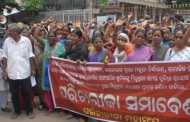

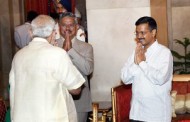
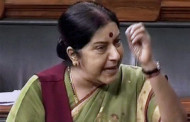

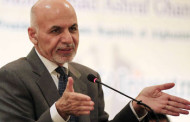
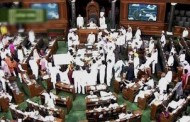
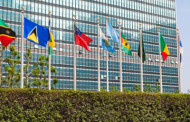






Recent Comments